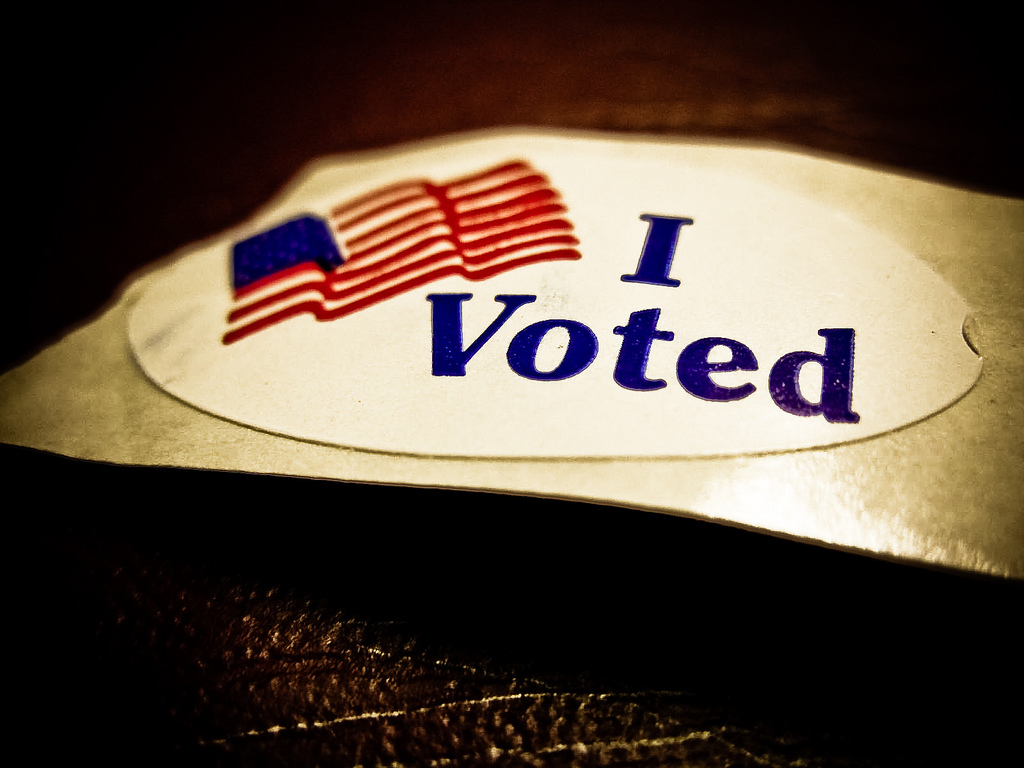You think if we talk about apps and open source for a little bit, we can get some of those pesky millennials out to vote?
Well, here goes nothing: here is a roundup of seven flashy, Philly-made digital tools any voter can use to hit the polling place with a better understanding of the statement they’re making.
1. Philadelphia Voter App
First things first: you’re going to need to know (in case you don’t already), where your polling place is and what votes you’ll be casting. For that, enter your address in this platform from the City Commissioners Office to download your sample ballot and evaluate what choices you’ll be making.
2. Who Won Philly
Originally a Code for Philly project, this digital platform — now adopted by the City Commissioners — will display results live in a mobile-friendly format. You can tinker with the criteria and narrow down results by district, ward and even type of ballot.
3. Leverage
Granted, this is a hackathon-born project that is still developing, but we were impressed by its display at Code for Philly’s City as a Service Hackathon (CaaSH), so we gave it a spot on our recap.
Leverage wants to allow voters to explore campaign finance data in a digital platform #CaaSH pic.twitter.com/k3q0U9nBRz
— Technical.ly (@Technical_ly) October 25, 2016
What does the platform bring to the table? The winner of the Civic Tech award at #CaaSH provides users with a thorough review of campaign finance numbers in Philly. The platform’s open API hints at the possibility of future iterations with data from other cities.
4. Philly Ward Leaders
The elusive and highly influential figure of Ward Leader is demystified in this site. Also a Code for Philly jawn, the platform answers a simple question: who are Philly’s 66 ward leaders? The tool will let you associate faces to the names of these Philly political operatives.

Enter your address, meet your ward leader. (Screenshot via phillywardleaders.com)
5. Councilmatic
While this election has no City Council seats up for grabs, and the tool is not up to date, it does allow for important political context by displaying a significant volume of data on each member of Philadelphia’s previous City Council, a number of which are still active in the legislative body. Click on each official to review bills sponsored (sorted by topic), the districts they represent and more.
6. Ballot Box App
Once every vote has been tallied and counted, this nifty tool will let you review and compare results from previous elections, narrowing them down by district and ward and displaying them in your preferred style of graph. Perfect for data nerds (we see you, Chris Wink).

The 2012 Presidential race in Philly. (Screenshot)
7. VIP (Voter Information Project)
This Azavea-built platform was created in partnership with the Pew Charitable Trusts and Google lets voters find the nearest voting place and enables them to see, where available, the list of candidates. What’s the catch? It’s a “white label” project with an open source code to let states and cities build their own version of the platform.
Honorary mention: Cicero
Not so much for individual voters, but if we’re talking about Philly-built civic tech, Cicero — also built by Azavea — *should* get at least a shoutout. The platform, which we’ve been talking about for some time now, is a database of elected officials and legislative district boundaries.
“Voters are not the direct consumers but the organizations that use the data are all aimed at connecting voters with legislators and voters with polling places,” says Azavea CEO Robert Cheetham. “For example, Google uses Cicero data as one of the sources for its Civic Information API.”
Before you go...
Please consider supporting Technical.ly to keep our independent journalism strong. Unlike most business-focused media outlets, we don’t have a paywall. Instead, we count on your personal and organizational support.
Join our growing Slack community
Join 5,000 tech professionals and entrepreneurs in our community Slack today!

The person charged in the UnitedHealthcare CEO shooting had a ton of tech connections

From rejection to innovation: How I built a tool to beat AI hiring algorithms at their own game

Where are the country’s most vibrant tech and startup communities?

